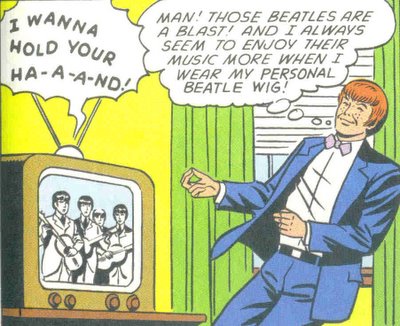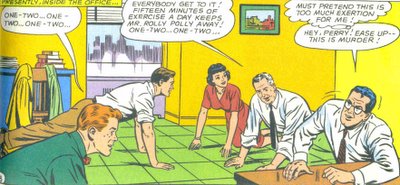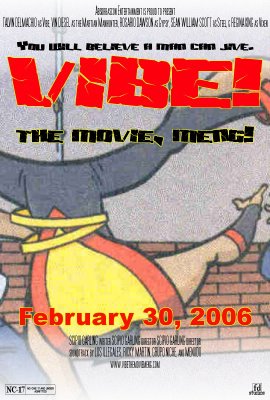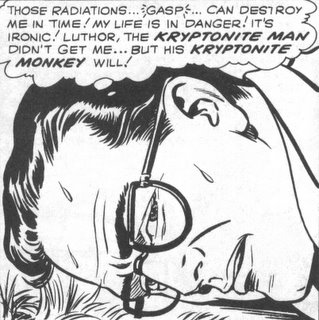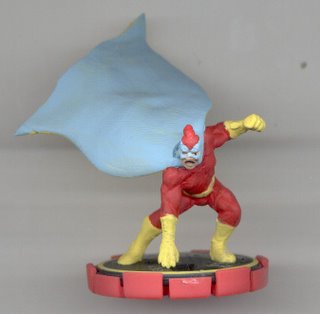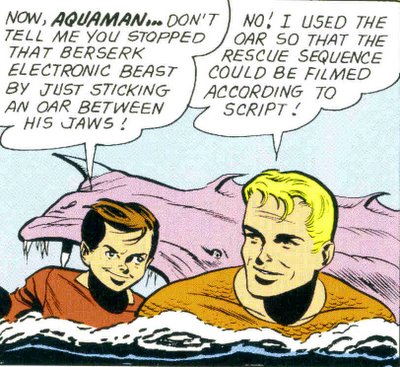The current clash between the Big Three --
Superman,
Batman, and
Wonder Woman -- is interesting not just for its ramifications for the DCU, but for the ethical conflict it symbolizes.
For decades now, Batman and Superman have been presented, more or less, as opposites. Night and day, scary and inspiring, aggressive and passive, violent and
pacificistic, anti-authoritarian and authoritarian, urban and rural, wealthy and poor, etc.
And, Wonder Woman was, um... a woman. And she stood for, ah, peace through ... strength. Or, or, something like that.
But Wonder Woman's recent murder of Max Lord has made crystal clear what we should have known all along: the Big Three represent
different ethical theories.
 Superman represents idealistic Moral Absolutism:
Superman represents idealistic Moral Absolutism: what's wrong is wrong.
Batman represents pragmatic Rule-based Utilitarianism: we must all operate by universal rules that would keep society safe and workable ("Thou shalt not kill.")
Wonder Woman represents Situational Ethics: It's not that simple to figure out right and wrong, and it changes with each situation depending on how much harm is done to how many people.
These characterizations aren't unrealistic; in fact, most men are either moral absolutists or utilitarians and most women are situational ethicists. To women, men's understanding of "justice" seems
narrowminded, hidebound, and simplistic. To men, women's understanding of "justice" seems
fickle, subjective, and uselessly fuzzy.I could expound on this observation about
DC's Ethical Trinity (
endlessly-- just ask any of my oh so patient friends...), but I would rather listen to
YOU discuss this idea and whether it's dead on or dead wrong; please do!
In either case, it still contributes to my belief that DC characters are more iconic because they represent
philosophical archtypes whereas Marvel character are less iconic because they represent
psychological archtypes.


